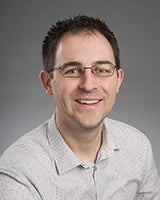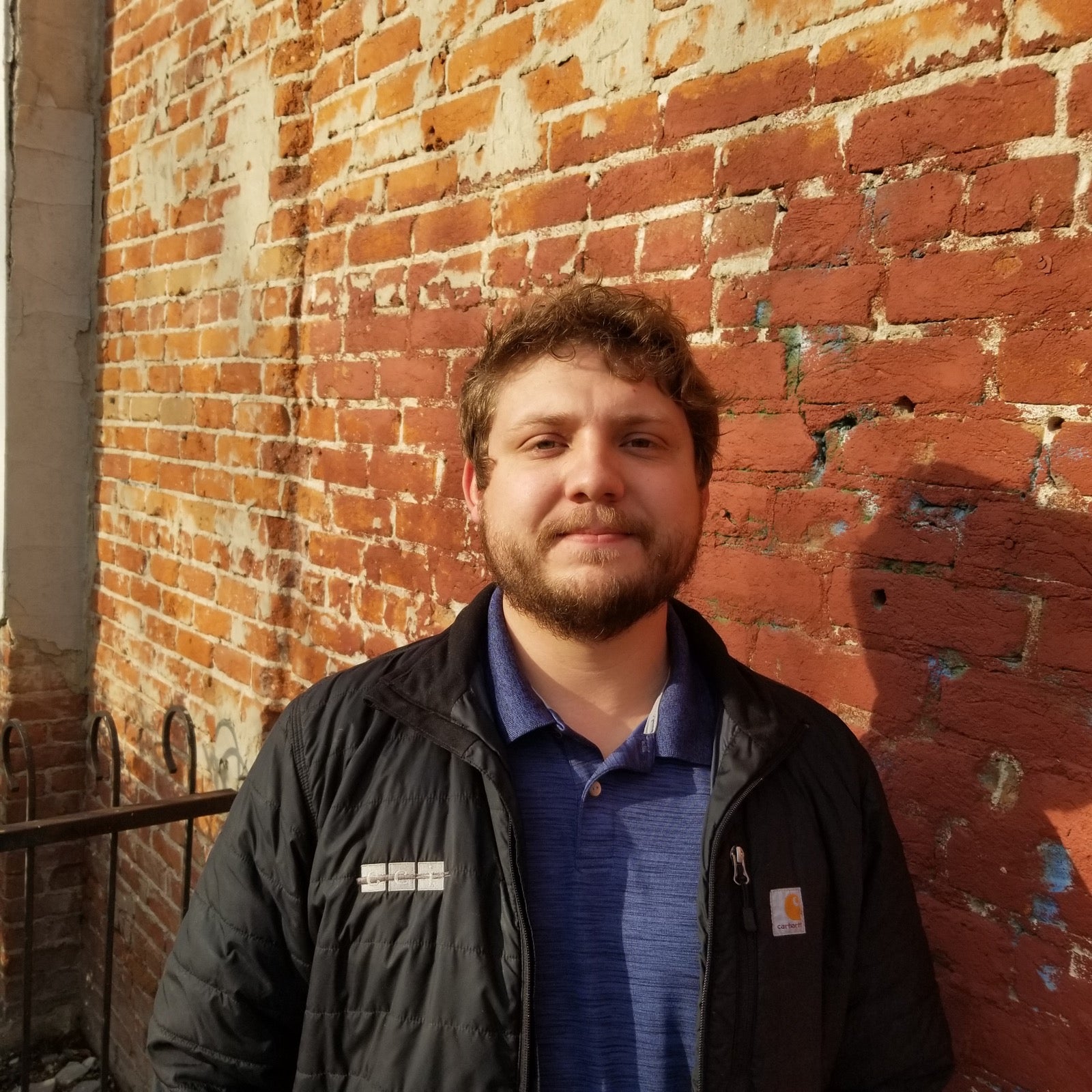Principal Investigator
-

Kurtis D. Cantley
Associate Professor, Department of Electrical and Computer Engineering
Dr. Cantley grew up in Kennewick, WA and received his bachelor’s degree in electrical engineering from Washington State University in 2005. He was a member of the Honors College at WSU and also received minors in math, physics, and music, spending significant time performing on trumpet with various ensembles including the WSU and Washington-Idaho symphony orchestras. In 2005, Dr. Cantley moved to West Lafayette, IN to attend Purdue University, where he graduated with a master’s degree in ECE in 2007. From there, he moved to Plano, TX to begin his PhD in electrical engineering at The University of Texas at Dallas with funding from the National Defense Science and Engineering Graduate (NDSEG) fellowship. Following graduation from UTD in 2011 with another year or so of post-doctoral work, Dr. Cantley joined the faculty in the department of Electrical and Computer Engineering at Boise State University (in August 2013). He is happy to be living in the Pacific Northwest.
Dr. Cantley grew up in Kennewick, WA and received his bachelor’s degree in electrical engineering from Washington State University in 2005. He was a member of the Honors College at WSU and also received minors in math, physics, and music, spending significant time performing on trumpet with various ensembles including the WSU and Washington-Idaho symphony orchestras. In 2005, Dr. Cantley moved to West Lafayette, IN to attend Purdue University, where he graduated with a master’s degree in ECE in 2007. From there, he moved to Plano, TX to begin his PhD in electrical engineering at The University of Texas at Dallas with funding from the National Defense Science and Engineering Graduate (NDSEG) fellowship. Following graduation from UTD in 2011 with another year or so of post-doctoral work, Dr. Cantley joined the faculty in the department of Electrical and Computer Engineering at Boise State University (in August 2013). He is happy to be living in the Pacific Northwest.
Student Researchers
Graduate Students
Ben Etcheverry (PhD student)

Ben started his undergrad studies at the College of Southern Idaho in Twin Falls where he grew up. He received his Bachelor’s degree from Boise State University in Electrical and Computer Engineering while doing undergrad research in the ENDS Lab and working in commercial power and lighting design with Engineering Consultants Incorporated. Ben is currently seeking his PhD in Electrical and Computer Engineering and researching Neuromorphic Device Design, IC Fabrication, and Neuromorphic Architecture.
Farhana Afrin (PhD student)

Farhana joined Boise State University as a PhD student in the ECE department in 2020 after completing her MS from Louisiana State University. She is interested in exploring how artificial neural networks are used in analog, digital, mixed-signal VLSI, and software systems. Farhana’s research focuses on the investigation and development of the function and application of neural networks and neuromorphic architectures using CAD tools such as Cadence.
Former Graduate Students and Alumni
Robert Ivans (PhD ECE 2021), now at Idaho National Laboratory
Sumedha Dahl (PhD ECE 2020), now at Micron Technology
Sepideh Rastegar (MEng ECE 2017), now at Micron Technology
Undergraduate Students
Previous Students and Interns
Kyle Kramer: BSEE 2021. Kyle completed many different tasks while in the group including electrophysiology and electrical testing, as well as sensor systems for the neural networks and investigating integration of neural networks and industrial control system protocols.
Nate Fisher: BSEE 2021. Nate became the guru of embedded systems and PCB design while in the group. He was primarily responsible for spiking neuron circuit design and testing, and ultimately the Neural Application Test Environment (NATE) 2.0, our current neuromorphic hardware platform.
Susy Camargo: BSEE 2018. Susy was part of the Louis Stokes Alliance for Minority Participation (LASAMP) program at Boise State, and also received a HERC fellowship to continue the research during the fall semester of 2017. She worked on electrical characterization of neuromorphic circuits and is now employed at HP Boise.
Kameron Sellers: BSEE 2018. Kameron lead the development of the hardware artificial neural network stimulator (HANNS) platform. He is now working for the US Army Corps of Engineers.
Catherine Walker: BSMSE 2018. Catherine’s research projects included developing bonding processes for flexible electronics, piezoelectric polymers, and materials characterization. She received a Boise State Summer Research Initiative Fellowship in 2014.
Justin Stadlbauer, BSEE. Justin is an undergraduate student pursuing a double major in electrical engineering and physics. His research was focused on development of electrophysiology capabilities for neural interface testing.
Conor Perry, Cal Poly, San Luis Obispo MSE (Summer 2016). Conor is part of the MSE REU program in Materials for Energy and Sustainability. He worked with the new Fuji Dimatix materials inkjet printer to create a standard process for silver printing for interconnects and carbon-based thin-film transistors.
Sierra Bush, Meridian Technical Charter High School (September 2015-May 2016). Sierra was a high school student in the electronics track at MTCHS, and assisted the group in obtaining advanced electrical measurements on a variety of semiconductor devices such as memristors.
Samantha D’az: BSEE . Samantha received an INBRE fellowship in 2015 to refine the testing capabilities of our electrophysiology system by automating control of the various components.
Vlad Calugaru, BSEE 2015. Vlad’s research involved developing electrical characterization techniques for artificial neural networks and their constituent devices. Vlad grew up in Romania, and moved to the United States at the age of 12. He loves to play piano and guitar, ride dirt bikes, and spend time outdoors.
Research Opportunities
Dr. Cantley is often looking for qualified graduate (PhD track preferred) and undergraduate students for various research projects involving fabrication and simulation of artificial neural networks and systems. The best candidates will be self-motivated and prepared to tackle a wide variety of engineering challenges and offer creative solutions. They will also have maintained an undergraduate GPA of at least 3.5/4 and/or obtained a master’s degree with GPA greater than 3.2/4. For graduate students, quantitative GRE scores should be in the upper quartile, while verbal and analytical scores would preferably be above the mean. Other candidates with exceptional experiences will also be considered. Generally, undergraduate pay is hourly with approximately 10-20 hours/week expected during the academic year, and 30-40 hours/week during the summer. Graduate students will also be offered competitive salary and benefits. If interested, please contact Dr. Cantley via email with an attached resume or CV.